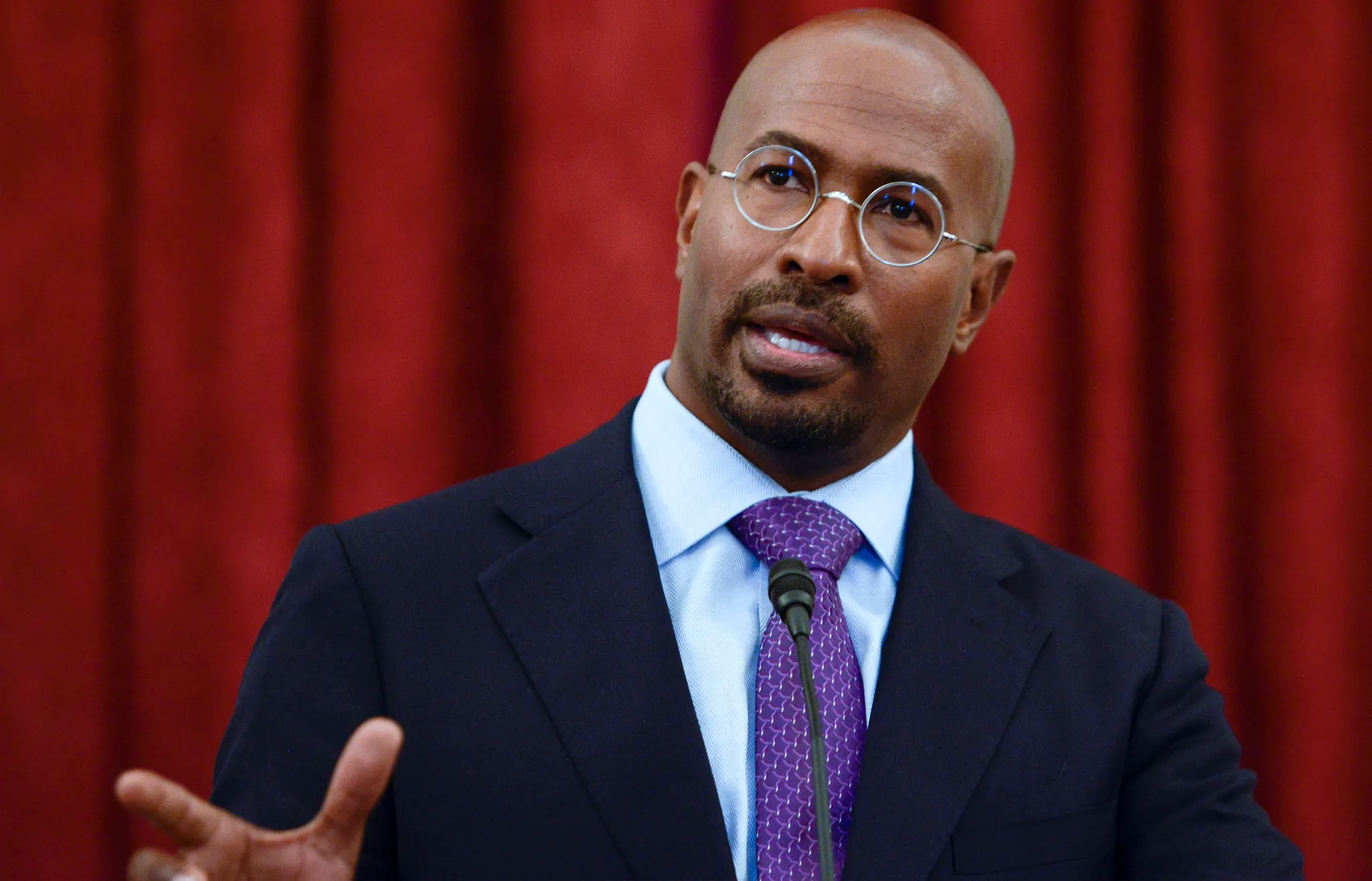Since Donald Trump’s unexpected victory in the 2016 presidential election, Democrats and the liberal media have struggled to understand how he succeeded against all odds. This disconnect, rooted in an outdated approach to media and messaging, continues to plague their strategy. One prominent voice calling attention to this issue is CNN’s Van Jones, who recently shared his insights into Trump’s success and the failures of the left to adapt to a rapidly changing media landscape.
During a conversation with former CNN commentator Chris Cillizza, Jones dissected how Trump capitalized on the rise of alternative media while traditional outlets fell behind. The discussion revealed a stark reality: Trump’s unconventional strategies have reshaped the political landscape, leaving Democrats playing catch-up.
Eric Thompson Podcast
“How the hell did Donald Trump figure out that the mainstream media is the fringe and the fringe is now the mainstream?” Cillizza asked during the conversation. “The 78-year-old guy who doesn’t even have a computer and still, like, writes handwritten notes? How did he become the guy who cracked the code?”
Jones credited Trump’s success to a combination of recognizing the shift in media consumption and leveraging unconventional platforms, such as podcasts, to connect with voters. He even speculated that Elon Musk and Barron Trump may have influenced Trump’s media strategy.
However, Jones emphasized that Trump himself deserves credit for understanding the changing dynamics and acting accordingly.
“Guys, can we cut it out? Donald Trump is not an idiot,” Jones said. “Donald Trump, let me just be very clear. Donald Trump is smarter than me, you, and all critics. You know how I know? Because he has the White House, the Senate, the House, the popular vote…”
Jones highlighted how Trump’s approach to politics has been nothing short of groundbreaking, combining bold decisions with a laser focus on tangible policies.
“This dude is a phenomenon,” Jones said. “He is the most powerful human on Earth and in our lifetime. And we’re still saying, ‘Well, how is this guy [doing it]?’ We look like idiots.”
Jones compared Trump’s movement to a political juggernaut, driven by unprecedented fervor and loyalty from his base. His willingness to engage with a broad spectrum of voices—including critics and independent platforms like Joe Rogan’s podcast—set him apart.
Cillizza echoed Jones’ sentiments, admitting that Democrats have struggled to keep pace with Trump’s innovative strategies. While Trump embraced modern platforms and connected with diverse audiences, Democrats relied on more traditional methods, such as door-knocking and conventional campaign ads.
Jones specifically criticized Vice President Kamala Harris for failing to engage with influential figures like Joe Rogan during her campaign, missing opportunities to expand her reach.
“Unlike Kamala Harris, [Trump] had concrete policies and answers,” Jones remarked. “You’re talking about a guy who was able to survive and triumph over everything thrown against him.”
This lack of adaptability, Jones suggested, underscores a broader issue within Democratic circles: an inability to innovate and move beyond entrenched strategies.
Jones didn’t hold back when addressing the liberal media’s portrayal of Trump. For years, mainstream outlets have dismissed Trump as unintelligent or incompetent, a narrative Jones believes has backfired.
“Van Jones calls out liberal media figures for habitually saying that Trump is stupid, and notes that mainstream media figures are the ones that end up ‘looking like idiots,’” a recent tweet summarized.
By underestimating Trump, Jones argued, critics failed to grasp the depth of his appeal and the effectiveness of his tactics.\
Jones’ candid remarks highlight a growing divide between those who understand the evolving media landscape and those who remain stuck in the past. Trump’s willingness to adapt has not only reshaped Republican politics but also forced a reckoning within the Democratic Party.
While some may view Jones’ praise for Trump’s strategy as controversial, it sheds light on critical weaknesses in the left’s approach to communication and campaigning. The focus on external blame for electoral losses—rather than introspection—has only deepened these challenges.
As the media landscape continues to evolve, Democrats face a choice: adapt or risk further alienation. Jones’ critique serves as a wake-up call for the left to embrace new platforms, engage diverse audiences, and craft clear, actionable policies.
The question remains: Will Democratic leaders heed the advice and rise to the challenge, or will they continue to rely on outdated tactics?
One thing is clear—Trump’s success has redefined the rules of engagement in U.S. politics, and the consequences of ignoring this shift are becoming increasingly evident. Jones’ blunt assessment may ruffle feathers, but it also offers a path forward for those willing to listen and learn.
In the end, the political landscape is not just about ideology; it’s about strategy, adaptation, and understanding the pulse of the electorate. For now, as Jones puts it, “We look like idiots,” but it’s never too late to change the game.

